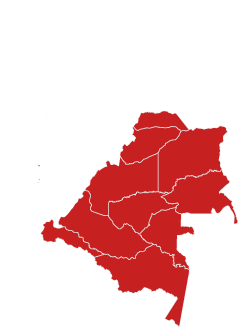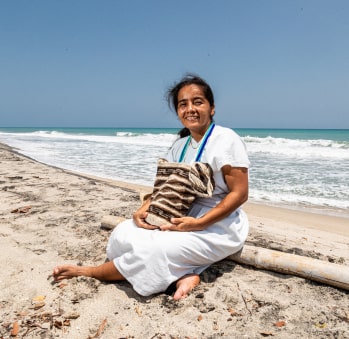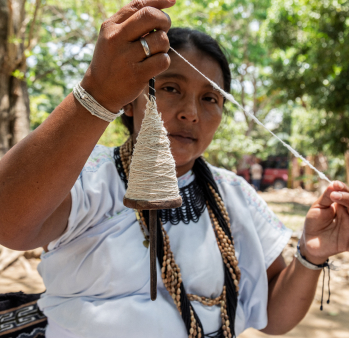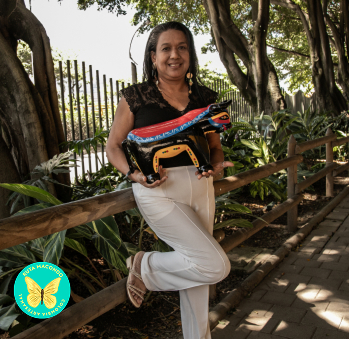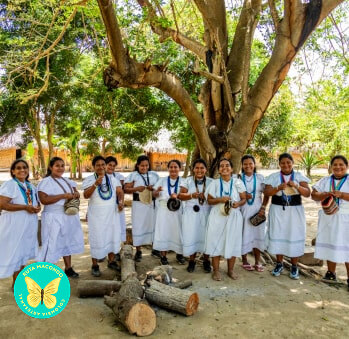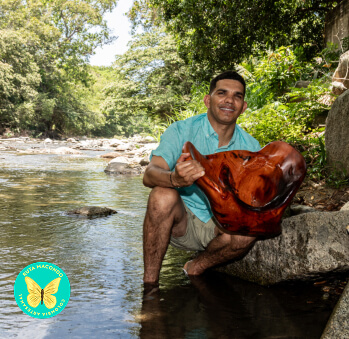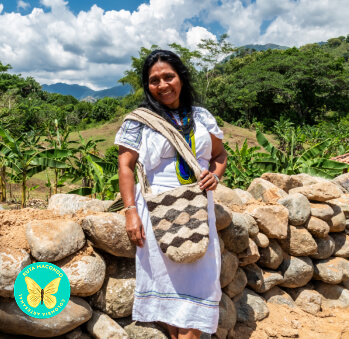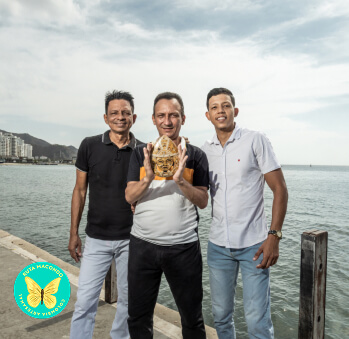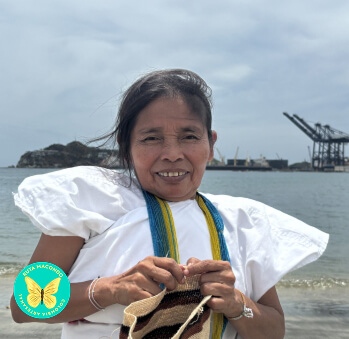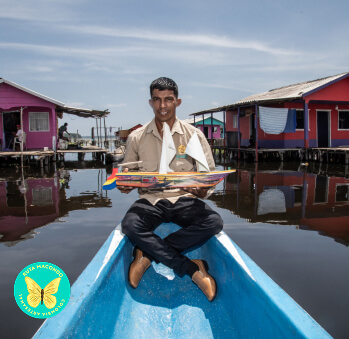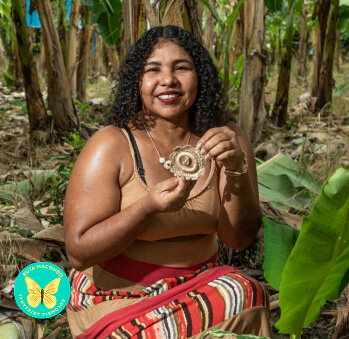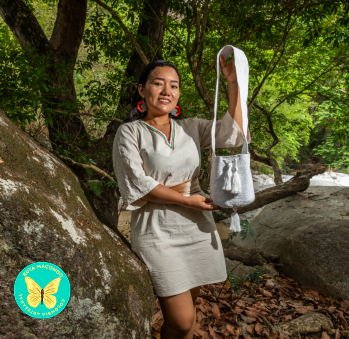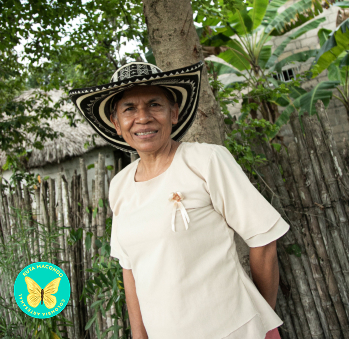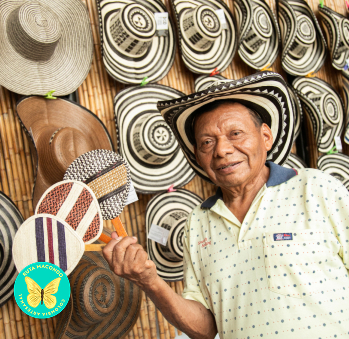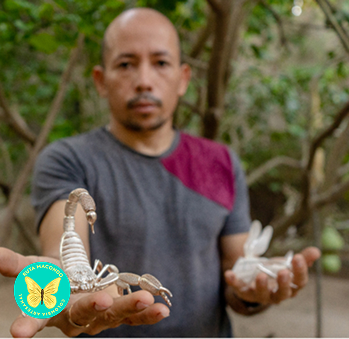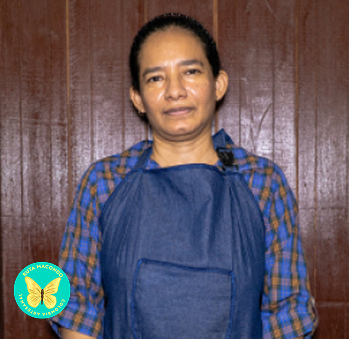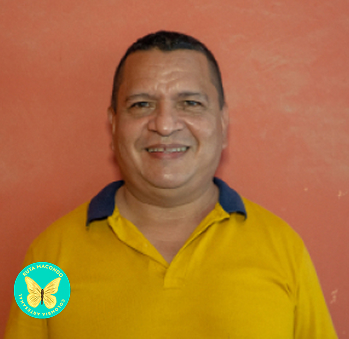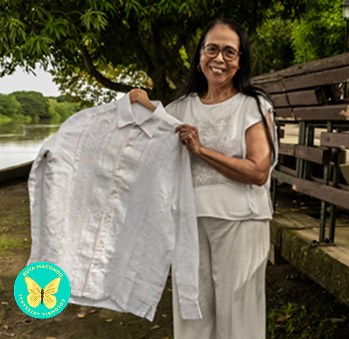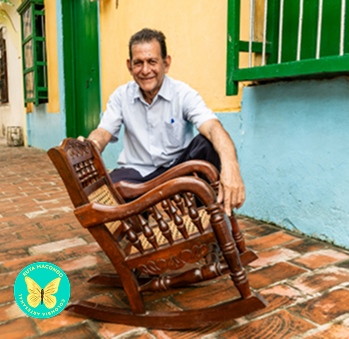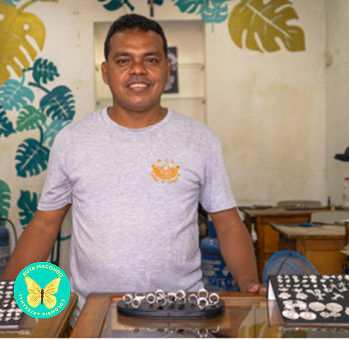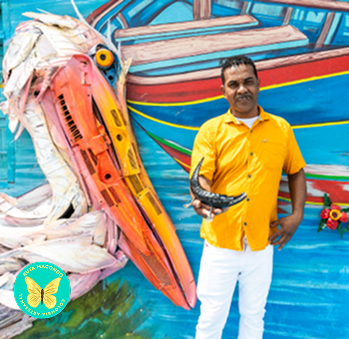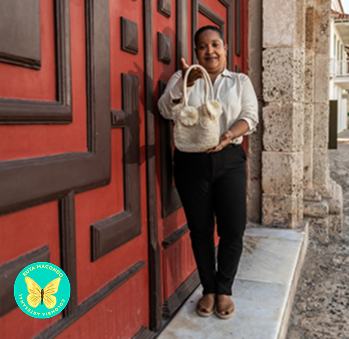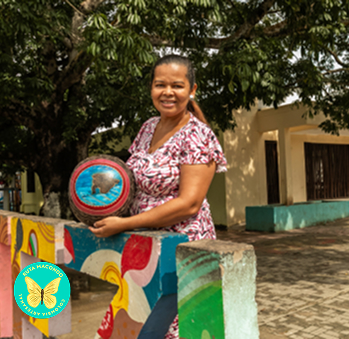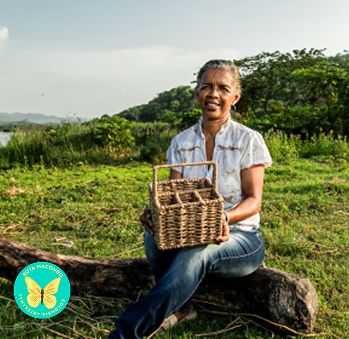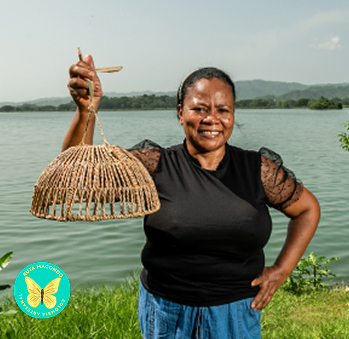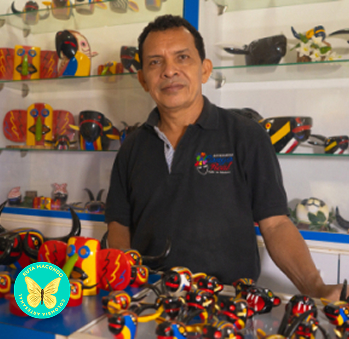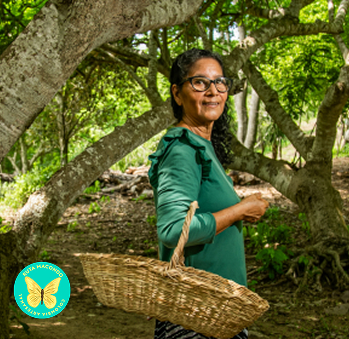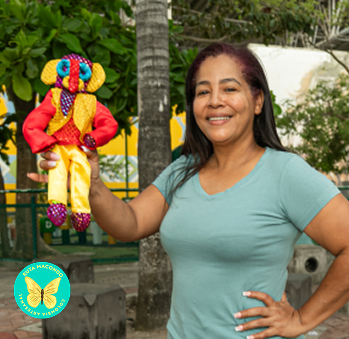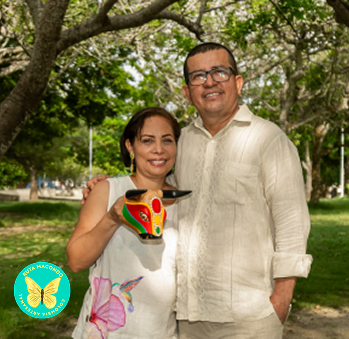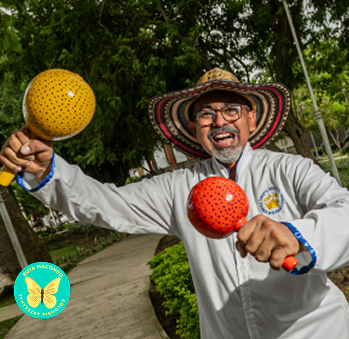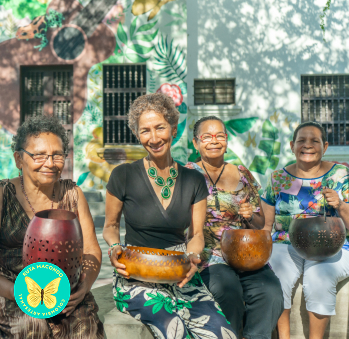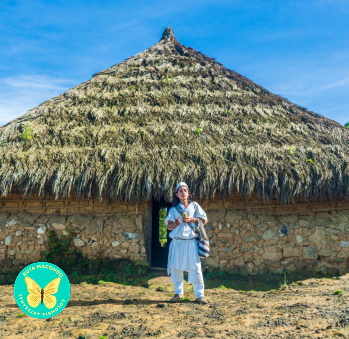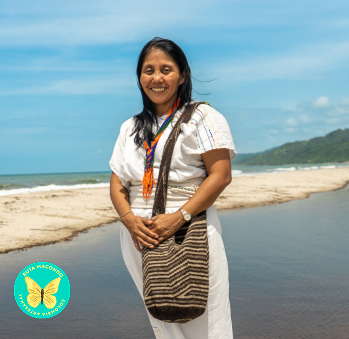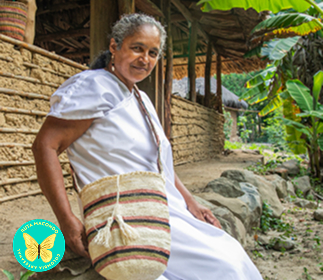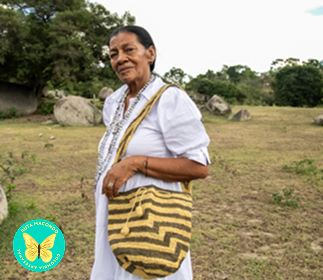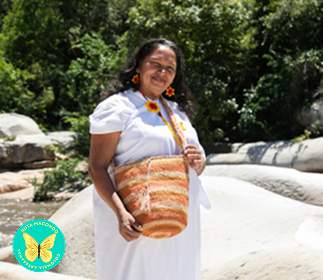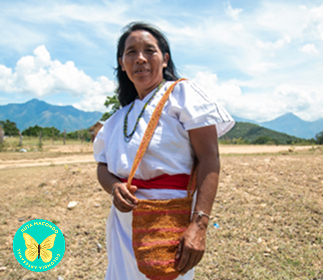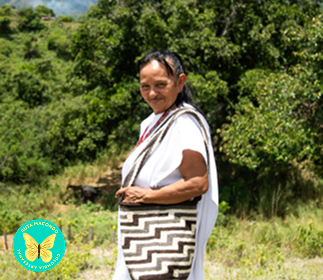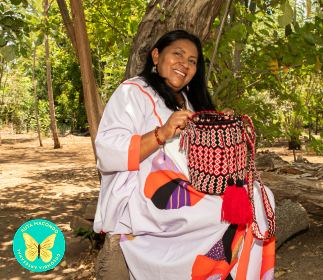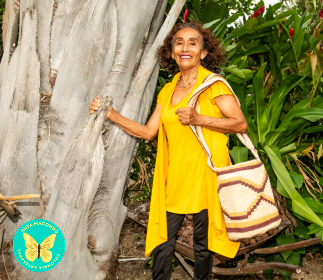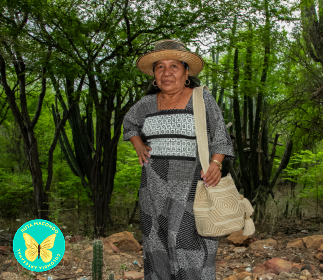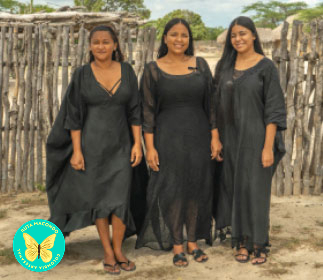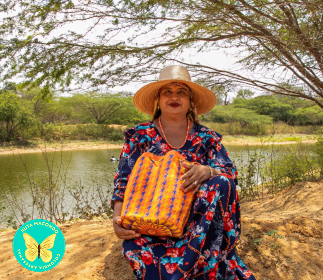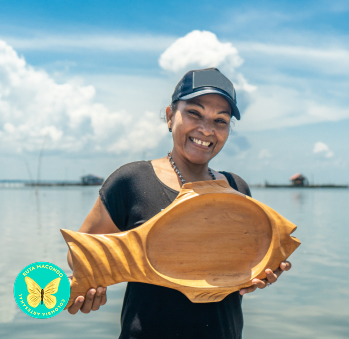Fundación Wirakoku
Workshop: Fundación Wirakoku
Craft: Weaving
Trail: Macondo Route
Location: Santa Marta, Macondo
“For a long time, the stories of Indigenous communities were told by men—by the mamos, their spiritual leaders, and by their official spokespeople. That’s how it had always been. But times change, and so do the means of these communities for speaking about care and the passing of artisanal wisdom. Such is the case of the Wirakoku Foundation, led by Arhuaco woman Lucelli Torres. Representing more than 100 Arhuaco weavers, she is working to balance the narrative and make their voices heard.
Lucelli, like many Indigenous Colombians, was forced to leave her ancestral land. She had to leave not once, but twice. The first time, at age eleven, for health reasons—there was no way to treat her in her hometown on the banks of the Fundación River. She lived, reluctantly, for two years in Santa Marta. Then, just before turning eighteen, her community had to flee from illegal armed groups. She speaks of these moments with a sigh, then reaffirms her deepest truth: that every Arhuaco, no matter where they go, carries a piece of the Sierra within them.
The women of Wirakoku live between Santa Marta and Katanzama, a territory between the Don Diego and Palomino Rivers on the road to La Guajira. Tired of being far from their homeland, they returned in 2010 and settled at the foot of the Sierra—close enough for visitors to reach, and close enough for them to remain connected. This proximity has allowed them to build a sustainable strategy for preserving and sharing their community knowledge, thus benefiting their people.
Their icon is, of course, the mochila. The woven bag is the common language of Indigenous women of the Sierra Nevada. Weaving it connects them to their land and to each other. Lucelli recalls that, before she even imagined leading a foundation, she once received an order for mochilas that exceeded her production capacity. She turned to Santa Marta’s markets for help and was shocked by how little such work was sold for. She discovered that the sellers were men, all of them, and that it was normal for them to bargain the mochilas as if it was just another item. That moment sparked a mission: to get the mochila paid at its fair value.
She pursued it with conviction. She believed that if people knew how a mochila was made, by whom and where, and how it took three months to complete, they would change their attitude—and they did. Canadian buyers fell in love with their work and promised to help. They kept their promise, taking Lucelli and her team on a tour of Canada that opened doors and opportunities—some so big that they had to slow down at first. “We were in kindergarten and they wanted to hand us a diploma,” she laughs, knowing that taking things slow was the only way to make them last. What makes her the happiest is knowing that if someone orders fifty mochilas, each one will come from a different woman across the territory.
Since founding the organization in 2012, they haven’t stopped seeking better conditions and bigger dreams. They’ve become expert cultural mediators. To the weaving experience, they’ve added culinary and medicinal practices—and even wellness retreats by the sea, to leave stress and sorrow behind. You only need an open spirit and a willingness to be guided by these powerful women. They’ll take care of the rest.”
Craft
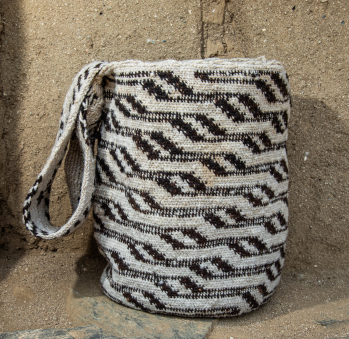
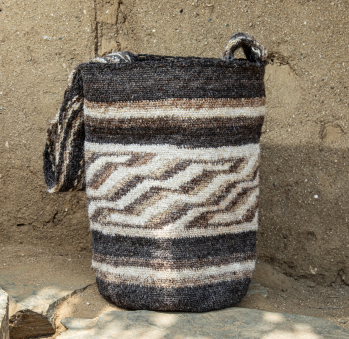
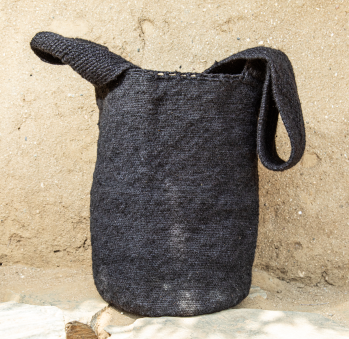
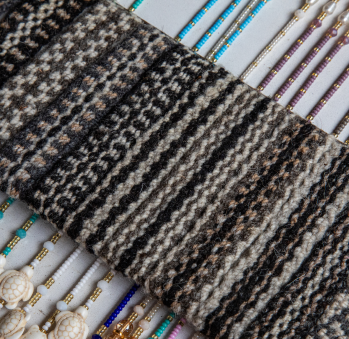
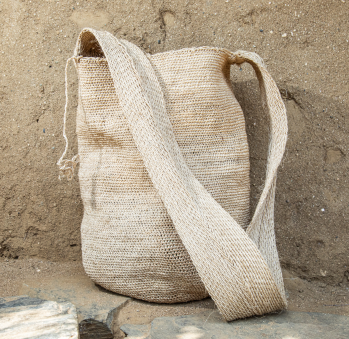
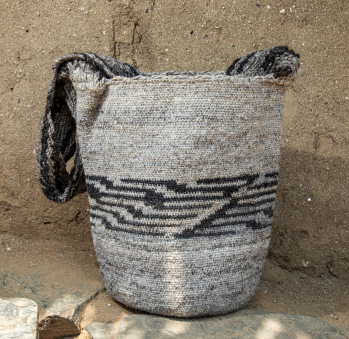

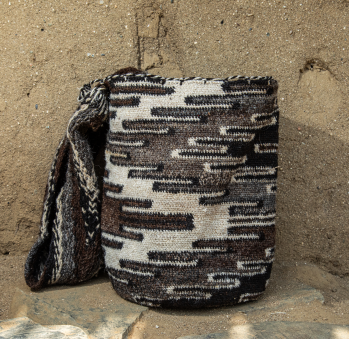
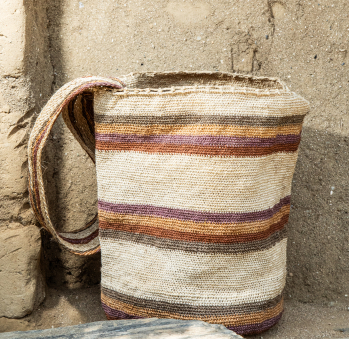









Artisans along the way
Artisans along the way
No puede copiar contenido de esta página

